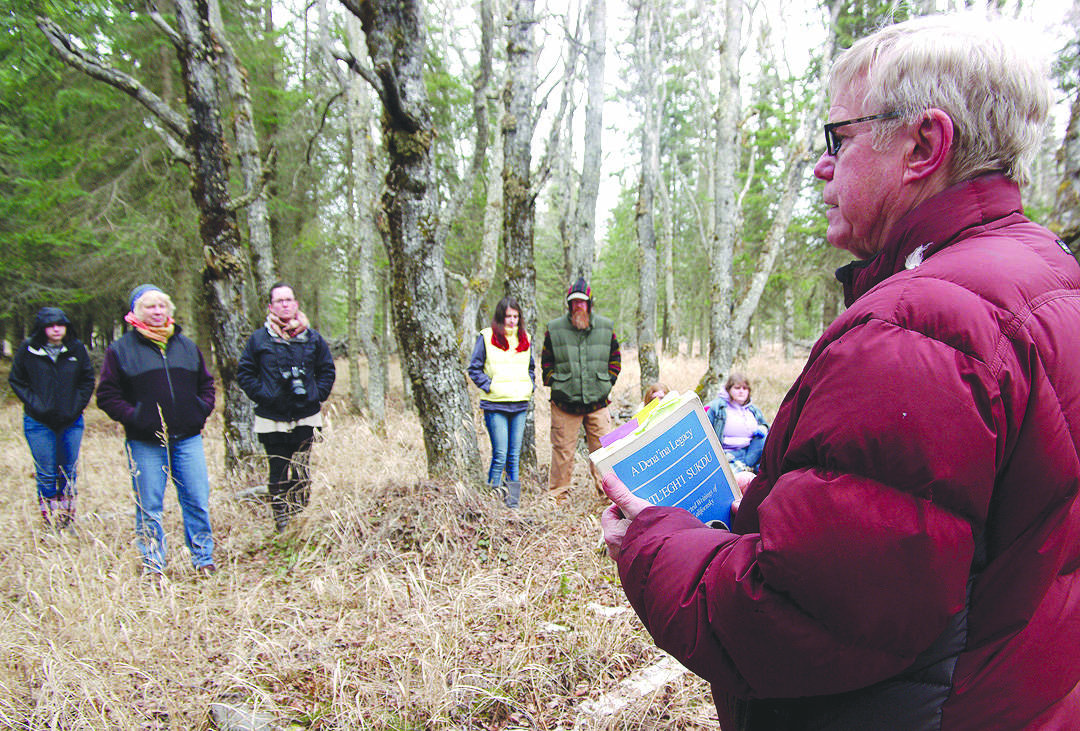Nearly 43 years ago, I was 18 years old, probably a bit too big for my britches, and almost devoid of any sense of personal direction. With no winter job to make me a productive member of society, and practically no idea what to do with the rest of my life, I found myself, in January 1977, taking classes at Kenai Peninsula Community College, where I met Alan Boraas, who was then in only his fourth year as a full-time instructor and who would challenge me intellectually and inspire me personally for the next four decades.
I had no idea then how often our paths would cross, but I have been blessed by all those aggregate moments.
The college class — the first of several I would take with Alan over the years — was Introduction to Geology. My clearest memory from that semester was a weekend field trip up the highway and into the mountains, where we students regularly disembarked from our vehicles to hear Alan use the topography to illustrate the story written by time and geology on our landscape. The experience was eye-opening. I had lived my entire life on the Kenai Peninsula without truly seeing what was right in front of me.
Alan had a knack of doing this — challenging me to look deeper, getting me to see beyond my own perspective. Alan was persistent, and his message was consistent.
In the 1980s, when I was in charge of the Clarion’s feature magazine called “The Tides,” Alan became a regular contributor. I became his editor. His treatments on anthropology, history and Native culture needed little editing, but I mention this because I became a regular reader of Alan’s ideas. When he became a columnist for the Anchorage Daily News and other publications, I continued to read him, awash in his ideas and, when he chose to be political, in his challenges to his readers.
Our paths crossed often — on Tsalteshi Trails, in the KPC anthropology lab, in the classroom, at Kaladi Brothers. We talked history, culture, education, outdoor recreation, morality, even politics. From Alan, there was always something new to learn.
I’m going to miss that — the encyclopedic memory, the wealth of experience and insight, even the challenges. And I’m going to miss his understated humor — and that sidelong glance of his as he checked to see whether I got the joke.
Alan was fiercely proud of his children, justifiably proud of his accomplishments, and so in love with the northcountry, with the glide of his skis over snow, and with the inherent beauty of life. I can almost hear him now telling me to keep my eyes and my ears open, to have compassion for those who deserve it, and to fight the good fight against those who do not.
I’ll try, Alan. Not all of us are as brave as you.
— Clark Fair
• By Clark Fair

